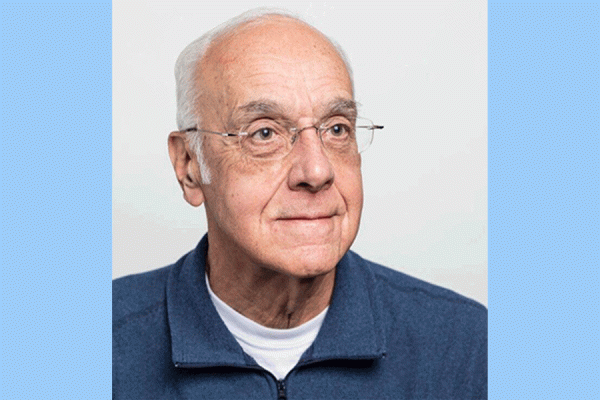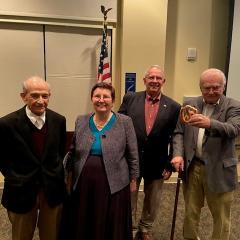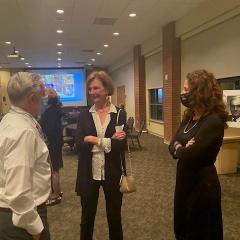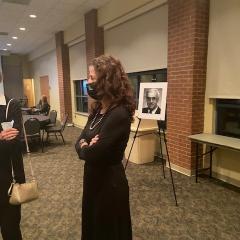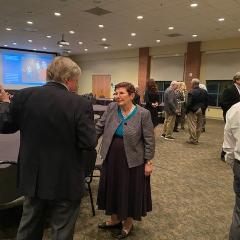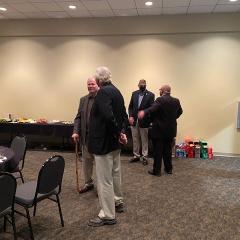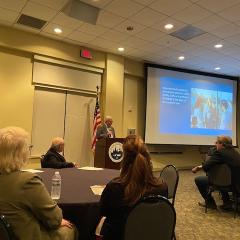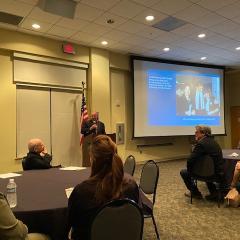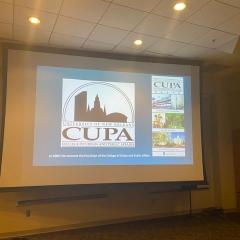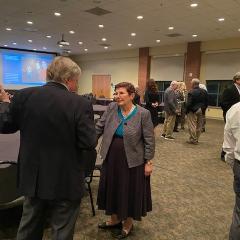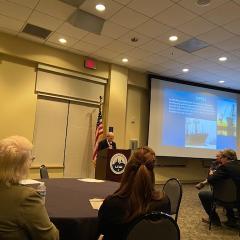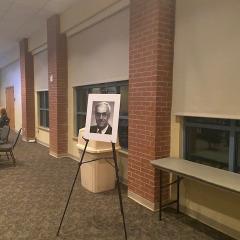Fritz Wagner, the founding dean of the University of New Orleans College of Urban and Public Affairs (CUPA), was remembered during a gathering Thursday as a multi-faceted leader, friend and mentor.
“The College of Urban and Public Affairs or CUPA, became a major force in urban planning and community building throughout the metropolitan New Orleans area through the outreach efforts of Fritz and faculty members and staff that he encouraged to get out and put their knowledge to work in the community,” said Jane Brooks, a founding faculty member of CUPA. “This was through applied research, study and service on boards and commissions.”
Wagner, who died Oct. 7 at the age of 79, spent 26 years teaching at UNO and volunteering around the New Orleans areas on commissions and boards.
His planning and policy work helped shape the region, Brooks told a group of Wagner’s friends and former colleagues who gathered in the ballroom of the Homer Hitt Alumni and Visitors Center at UNO for a celebration of his legacy.
“He was a dynamo,” Brooks said. “He just did an amazing amount of stuff!”
Some of those accomplishments included the creation of UNO’s first endowed chair via a $1 million donation and later a $1.3 million donation that help established what is now known as the UNO Transportation Institute, said Brooks, who worked with Wagner for 25 years.
Wagner arrived at UNO in 1974, hired as an assistant professor to teach in what was then the Urban Studies Institute. Wagner would later steer the institute into a school and later a college.
“Fritz worked tirelessly to build the academic programs and administrative structure that made urban planning and urban studies a vital part of UNO and the metropolitan New Orleans area,” Brooks said. “In 1980 Fritz became the director of the newly formed School of Urban and Regional Studies, SURS, as it was known then. By 1989, he had succeeded into building that into the College of Urban and Public Affairs.”
Wagner was lauded as a visionary for building a top-notch planning program from scratch, as tenacious for helping shepherd through the development of Jean Lafitte National Historical Park and Reserve while chairman of the Delta Region Preservation Commission, and for his generous spirit in mentoring countless colleagues and students.
“One definition of leadership is the art of getting someone else to do something you want done, because they want to do it,” said Anthony Mumphrey Jr., which drew laughter from the audience. “And that’s what Fritz could do, and that’s why he was my leader.”
Wagner, who grew up in Chelsea, Michigan, also was a huge believer in tradition, said Steve Villavaso, an urban planner and attorney, who is one of Wagner’s former students. Each year, Wagner would host a pretzel party to coincide with the annual football matchup between Michigan and Michigan State.
Wagner would make homemade pretzels from scratch, using a recipe he learned from his mother, Villavaso said. Wagner’s famous pretzels apparently included a secret ingredient that caused the audience to gasp—then sputter with laughter.
The first time he attended one of Wagner’s pretzel parties, Villavaso had arrived an hour early to help. He questioned Wagner about a bowl of foul-smelling liquid in the kitchen.
“It smelled like a chemical plant going on in there,” Villavaso said. “I asked, ‘What is that?’ He said, ‘It’s lye.’ I said, ‘Lye?’
“He said, ‘Yeah, we have to dip every pretzel in the lye before we bake it.’
After audible gasps from the audience, Villavaso laughed and replied, “Apparently, this was his mother’s secret recipe … and we consumed many of them every year!”


